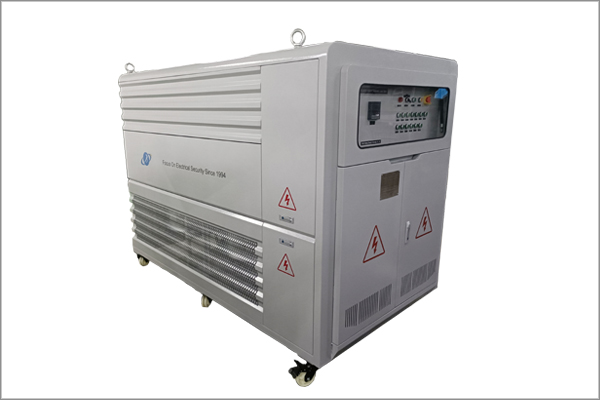Test parameters of resistive load of diesel generator
Time:2024-01-16
Diesel generators, as backup or main power, play an important role in many occasions. In order to ensure its stable and efficient operation, regular inspection and maintenance are essential. The detection of resistive load is an important step in evaluating the performance of diesel generators. In this paper, the detection parameters of resistive load of diesel generator are introduced in detail.
1. Voltage
Voltage is a physical quantity that measures the strength of an electric field and represents the magnitude of the potential difference in an electric field. For resistive loads, voltage detection helps to know the stability of the generator output and whether it meets predetermined standards. The normal voltage range should be within ±5% of the rated value.
2. Current
Current is a physical quantity that measures the amount of electric charge that passes through a conductor per unit time. In resistive load detection, the current directly reflects the load capacity of the generator. The current fluctuation can also reflect the performance state of the starting motor.
3. Power factor
The power factor represents the ratio of the output active power to the apparent power of the generator and reflects the efficiency of the generator. An ideal power factor of 1 means that the generator converts electricity completely without loss. Detecting the power factor helps to understand the efficiency of the generator and whether there are potential failures or problems.
Step 4: Temperature
The operating temperature of diesel generator is also an important test parameter. Too high a temperature may cause degradation or damage to the generator performance, while too low a temperature may affect the starting performance of the generator. Generally, the operating temperature of the generator should be kept within the specified range.
5. Oil pressure and oil quality
The internal oil pressure and oil quality of a diesel generator are crucial to its normal operation. Too low oil pressure may lead to insufficient lubrication, while the decline in oil quality may cause various mechanical failures. Therefore, regular inspection of oil pressure and oil quality is necessary.
6. Sound and vibration
By listening to the sound of the generator and feeling its vibration, the state of the generator can be preliminarily judged. Abnormal sounds or vibrations may indicate underlying problems such as unbalance, loosening, or other mechanical failure.
To sum up, in order to ensure the normal operation of diesel generators, it is very important to detect the resistive load. By focusing on parameters such as voltage, current, power factor, temperature, oil pressure, oil quality, sound and vibration, the performance of the generator can be comprehensively evaluated and potential problems can be identified and resolved in a timely manner. These measures help extend the service life of the generator and ensure stable and reliable power supply at critical times.
News Recommendation
-
 2024-09-11
2024-09-11TRIUMPH LOAD EXHIBITING AT Enlit Europe 2024 -BOOTH 7.H08
-
 2023-04-21
2023-04-21TRIUMPH LOAD EXHIBITING AT DATA CENTER WORLD GERMANY 2023-BOOTH F909
-
 2023-04-06
2023-04-06TRIUMPH LOAD EXHIBITING AT ELECTRIC POWER TECH KOREA 2023 – Booth G109
-
 2022-05-05
2022-05-05What is the role of ac load bank for power supply?
-
 2022-05-05
2022-05-05What is the role of the load bank?


